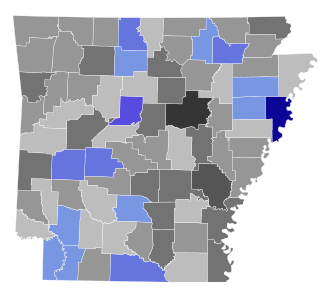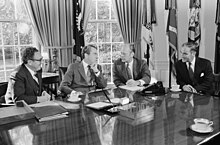Politics is the set of activities that are associated with making decisions in groups, or other forms of power relations among individuals, such as the distribution of resources or status. The branch of social science that studies politics and government is referred to as political science.

Political corruption is the use of powers by government officials or their network contacts for illegitimate private gain.

Kleptocracy, also referred to as thievocracy, is a government whose corrupt leaders (kleptocrats) use political power to expropriate the wealth of the people and land they govern, typically by embezzling or misappropriating government funds at the expense of the wider population. One feature of political-based socioeconomic thievery is that there is often no public announcement explaining or apologizing for misappropriations, nor any legal charges or punishment levied against the offenders.
Accountability, in terms of ethics and governance, is equated with answerability, culpability, liability, and the expectation of account-giving.
Populism is a range of political stances that emphasize the idea of "the people" and often juxtapose this group with "the elite". It is frequently associated with anti-establishment and anti-political sentiment. The term developed in the late 19th century and has been applied to various politicians, parties and movements since that time, often as a pejorative. Within political science and other social sciences, several different definitions of populism have been employed, with some scholars proposing that the term be rejected altogether.

Campaign finance, also known as election finance, political donations or political finance, refers to the funds raised to promote candidates, political parties, or policy initiatives and referendums. Donors and recipients include individuals, corporations, political parties, and charitable organizations.
As an ethic that spans science, engineering, business, and the humanities, transparency is operating in such a way that it is easy for others to see what actions are performed. Transparency implies openness, communication, and accountability.
Cronyism is a specific form of in-group favoritism, the spoils system practice of partiality in awarding jobs and other advantages to friends or trusted colleagues, especially in politics and between politicians and supportive organizations. For example, cronyism occurs when appointing "cronies" to positions of authority regardless of their qualifications. This is in contrast to a meritocracy, in which appointments are made based on merit. Politically, "cronyism" is derogatorily used to imply buying and selling favors, such as votes in legislative bodies, as doing favors to organizations, or giving desirable ambassadorships to exotic places.

Jacksonian democracy was a 19th-century political philosophy in the United States that expanded suffrage to most white men over the age of 21 and restructured a number of federal institutions. Originating with the seventh U.S. president, Andrew Jackson and his supporters, it became the nation's dominant political worldview for a generation. The term itself was in active use by the 1830s.

The Progressive Era (1896–1917) was a period in the United States during the early 20th century of widespread social activism and political reform across the country. Progressives sought to address the problems caused by rapid industrialization, urbanization, immigration, and political corruption as well as the enormous concentration of industrial ownership in monopolies. Progressive reformers were alarmed by the spread of slums, poverty, and the exploitation of labor. Multiple overlapping progressive movements fought perceived social, political, and economic ills by advancing democracy, scientific methods, and professionalism; regulating business; protecting the natural environment; and improving working and living conditions of the urban poor.

Robert David Putnam is an American political scientist specializing in comparative politics. He is the Peter and Isabel Malkin Professor of Public Policy at the Harvard University John F. Kennedy School of Government.

The values and ideals of republicanism are foundational in the constitution and history of the United States. As the United States constitution prohibits granting titles of nobility, republicanism in this context does not refer to a political movement to abolish such a social class, as it does in countries such as the UK, Australia, and the Netherlands. Instead, it refers to the core values that citizenry in a republic have, or ought to have.
Progressivism in the United States is a political philosophy and reform movement. Into the 21st century, it advocates policies that are generally considered social democratic and part of the American Left. It has also expressed itself with right-wing politics, such as New Nationalism and progressive conservatism. It reached its height early in the 20th century. Middle/working class and reformist in nature, it arose as a response to the vast changes brought by modernization, such as the growth of large corporations, pollution, and corruption in American politics. Historian Alonzo Hamby describes American progressivism as a "political movement that addresses ideas, impulses, and issues stemming from modernization of American society. Emerging at the end of the nineteenth century, it established much of the tone of American politics throughout the first half of the century."

The Second Party System was the political party system operating in the United States from about 1828 to 1852, after the First Party System ended. The system was characterized by rapidly rising levels of voter interest, beginning in 1828, as demonstrated by Election Day turnouts, rallies, partisan newspapers, and high degrees of personal loyalty to parties.
These are the references for further information regarding the history of the Republican Party in the U.S. since 1854.
In governance, sortition is the selection of public officials or jurors using a random representative sample.

Bureaucracy is a system of organisation where decisions are made by a body of non-elected officials. Historically, a bureaucracy was a government administration managed by departments staffed with non-elected officials. Today, bureaucracy is the administrative system governing any large institution, whether publicly owned or privately owned. The public administration in many jurisdictions is an example of bureaucracy, as is any centralized hierarchical structure of an institution, including corporations, societies, nonprofit organisations, and clubs.
The New Politics Party, was a political party in Thailand founded on 2 June 2009. The NPP was the political party of the People's Alliance for Democracy, with which it shared the same principles and ideas. Ahead of the 2011 general election, the party broke with the PAD movement, and renamed to Thai Social Democratic Party two years later.

The 1937 Arkansas special senatorial election was held on October 19, 1937, following the death of longtime Democratic senator Joe T. Robinson. Robinson was a powerful senator, staunch Democrat, and strong supporter of Franklin D. Roosevelt, and was instrumental in passing many New Deal programs through the Senate. Arkansas was essentially a one-party state during the Solid South period; the Democratic Party controlled all aspects of state and local office. Recently elected Democratic Governor of Arkansas Carl E. Bailey initially considered appointing himself to finish Robinson's term, but later acceded to a nomination process by the Democratic Central Committee, avoiding a public primary but breaking a campaign process. Avoiding the primary so angered the public and establishment Democrats, leading them to coalesce behind longtime Democrat John E. Miller as an independent, forcing a general election.
Populism in the United States reaches back to the Presidency of Andrew Jackson in the 1830s and to the People's Party in the 1890s. It has made a resurgence in modern-day politics in not only the United States but also democracies around the world. Populism is an approach to politics which views "the people" as being opposed to "the elite" and is often used as a synonym of anti-establishment; as an ideology, it transcends the typical divisions of left and right and has become more prevalent in the US with the rise of disenfranchisement and apathy toward the establishment. The definition of populism is a complex one as due to its mercurial nature; it has been defined by many different scholars with different focuses, including political, economic, social, and discursive features. Populism is often split into two variants in the US, one with a focus on culture and the other that focuses on economics.











